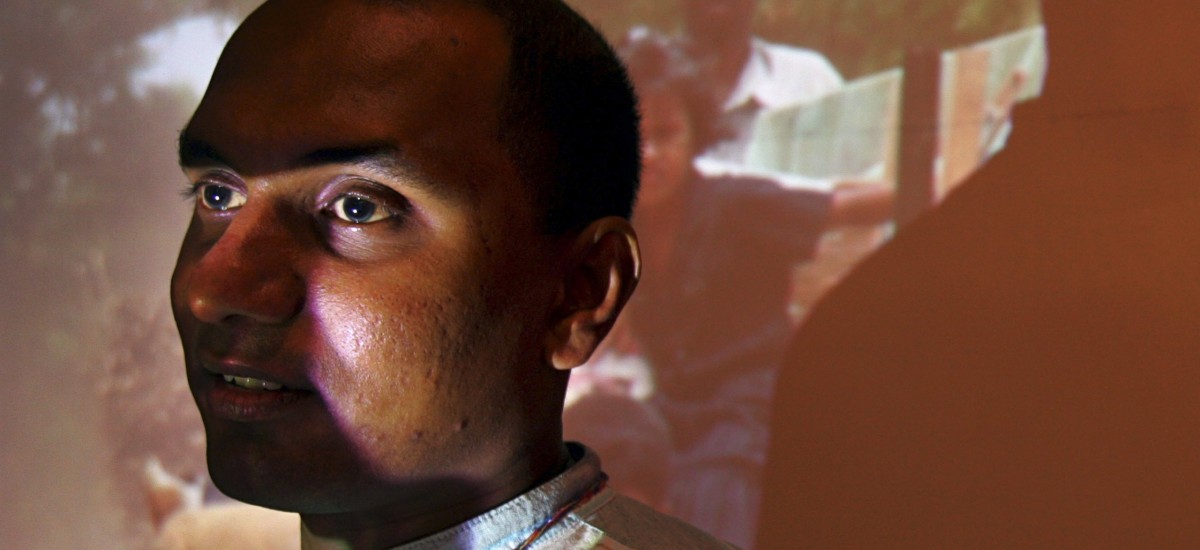Photo by Pat Roque/AP, courtesy The Guardian
The recent arrest of human rights activists Ruki Fernando and Father Praveen Mahesan under Sri Lanka’s draconian PTA law resulted in widespread condemnation within Sri Lanka and from the international community. As we noted in a previous article, “this is happening when deliberations at the Human Rights Council on Sri Lanka are taking place, demonstrating the regime’s scant regard for international opinion and scrutiny.”
After their release from custody, BBC World News interviewed Ruki Fernando on 19th March. As noted by the BBC’s Charles Haviland following Ruki’s interview,
(1) Ruki Fernando tells BBC "our 3 hrs of questioning @ K'nochchi was v harsh, bad language, threatening. About 15 questioners…" #lka #hrc
— Charles Haviland (@cfhaviland) March 19, 2014
(2) Ruki Fernando: in Colombo we were questioned separately by 1-3 ppl, intensive/probing but polite. No physical abuse @ any time #lka #hrc
— Charles Haviland (@cfhaviland) March 19, 2014
Though broadcast internationally, the interview never made it to the BBC’s website, explained perhaps by the relatively poor video quality of Ruki’s Skype connection. A day after it was broadcast, Ruki Fernando and Father Praveen Mahesan were slapped with a fresh gag order, preventing them from speaking with any media or foreign party. The computers, SIM cards and tablets of both were also impounded. Both individuals now need permission from the courts to go abroad until investigations are complete.
Ruki’s interview with BBC World News on 19th March is thus the only video currently available around the circumstances leading to his arrest, the nature of the TID’s interrogations and his treatment in custody. Under the gag order by the courts, no media or foreign party, for the foreseeable future, will be able to speak with Ruki or Fr. Praveen, or if they do, report publicly on it. The BBC’s video is a vital record in this context, not just of Ruki’s arrest, but of the larger framework of human rights abuse in post-war Sri Lanka, where with near complete impunity, those seeking to hold government and the military accountable find themselves the subjects of hate, hurt and harm.

